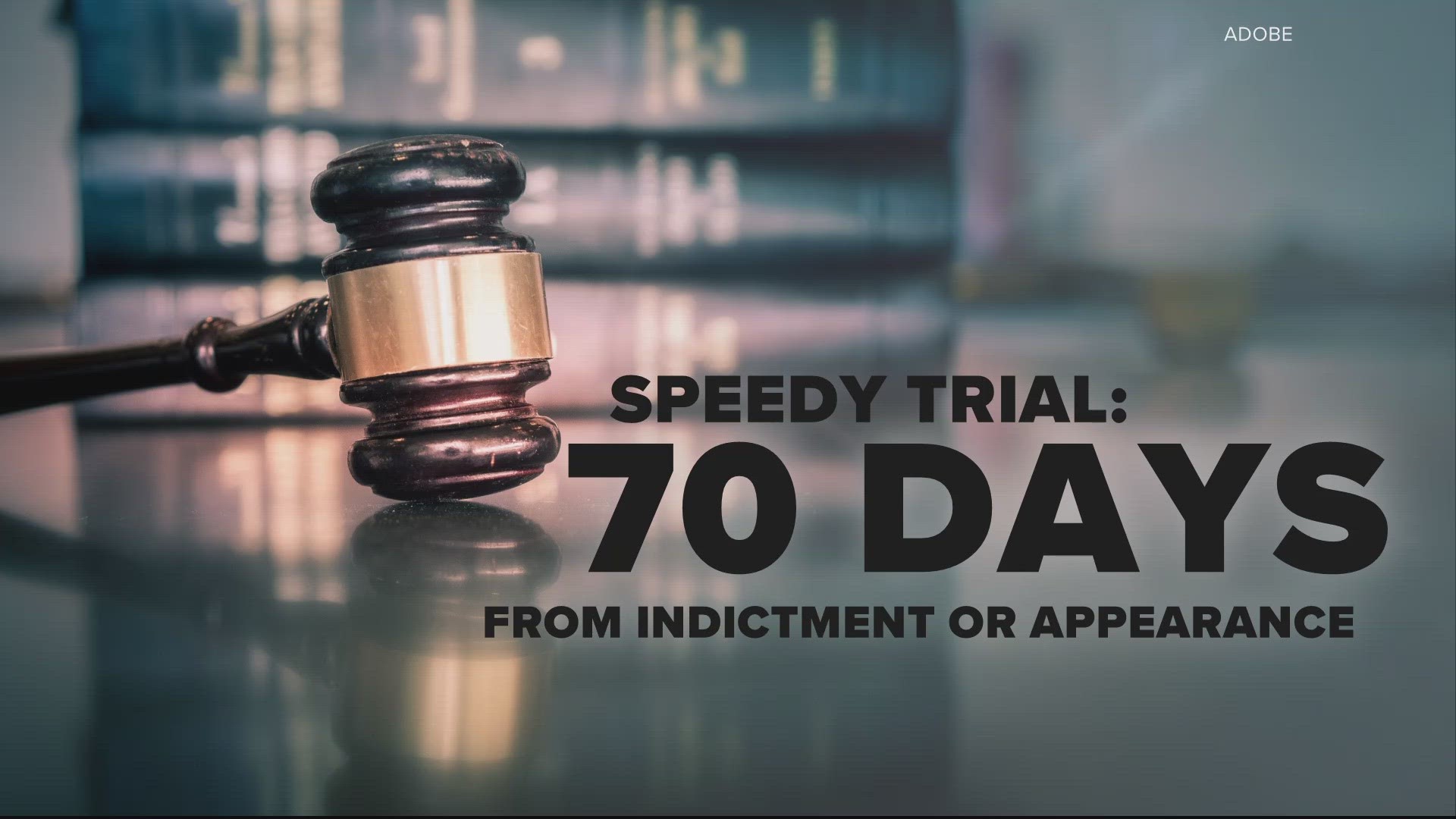WASHINGTON — Special counsel Jack Smith said he’d like to see the former president’s case proceed to a “speedy trial,” but Donald Trump is busy campaigning for another chance at the presidency in 2024.
THE QUESTION:
Are there rules dictating how quickly Donald Trump’s federal case must move forward?
THE SOURCES:
THE ANSWER:
Though a “speedy trial” does have some legal parameters, they can be quite flexible–and such a case can take months to get underway.
WHAT WE FOUND:
Turns out, a “speedy trial” has a legal definition—established in the “Speedy Trial Act.”
It requires federal trials to begin “70 days from the date the indictment was filed, or from the date the defendant appears before an officer of the court in which the charge is pending, whichever is later.”
However, this doesn’t include time added for procedures like pretrial motions. There are expected to be quite a few such motions in this case, which deals with sensitive classified information as evidence, and they can take weeks to resolve.
The Speedy Trial Act also allows for a trial judge to make a call when the “ends of justice” are better served by continuing, or delaying, a case…than by its quick resolution.
The presiding judge for at least the beginning of this case, Aileen Cannon, has made decisions considered favorable to the former president’s defense in the past. We can’t say what, if anything, that means moving forward, but we can Verify–even a “speedy trial” can take months to get underway.

